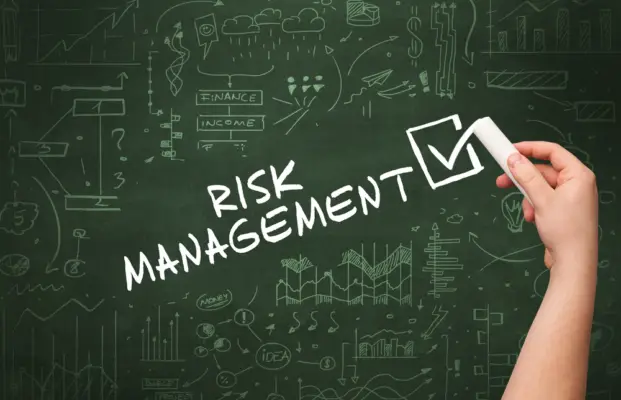Navigating the complex landscape of driver licensing can be challenging, especially for immigrants who may not have authorized or documented passports. In some states, specific drivers licence are available to cater to this demographic.
These licenses, known as driving licenses for restricted usage or driving privileges, can offer a legal way for immigrants to obtain valid driver licenses without compromising federal identification requirements for air travel.
In this blog post, we will explore the CO-RCSA SB251 driver licenses in detail, focusing on the requirements and application process in Colorado.

Understanding CO-RCSA SB251 Driver Licenses
Purpose and scope:
CO-RCSA SB251 drivers license aims to provide immigrants with unauthorized or undocumented passports a pathway to legal driving. They offer specialized driving licenses, states can ensure that all drivers on the road meet safety standards and possess adequate driving skills, regardless of their immigration status.
Limitations and restrictions:
Although SB 251 driver licenses grant driving privileges, they cannot serve as valid federal identification for air travel or other purposes. As such, they are solely for restricted usage, focusing on providing legal driving opportunities for immigrants.
Colorado Road and Community Safety Act (CO-RCSA SB13-251)
The 2013 Colorado Road and Community Safety law allows Colorado citizens to obtain a legally undocumented driving record and a valid passport with identification proof of colorado residency.
While the colorado license issued under CO-RCSA can’t be used to vote or to gain public benefits it can be used as Colorado identification.
Colorado SB 251 License Requirements
Under SB255, Colorado drivers have the option of obtaining a license to drive for any non-Colorado resident. The Center provides information, resources, and education for organizations in various states that assist communities in preparing necessary documents or by making an appointment for license renewal.
Documentation needed:
To apply for an SB 251 driver’s license in Colorado, applicants must provide the following documents: – Photo ID: This can be a passport, consular ID, or military ID. – Tax Identification number:
Applicants must provide a valid Social Security Number, (SSN) or Individual Taxpayer Identification Number (ITIN). – Proof of residency: Applicants’ documents presented must prove their current living conditions in Colorado.
Application process:
The application process for a Colorado SB 251 driver license is similar to that of a standard driver’s license. Applicants must visit their local Department of Motor Vehicles (DMV) office, provide the required documentation, pass a written test, and successfully complete a driving test.
Upon meeting all requirements, the DMV will issue an SB 251 driver’s license.
Driving Permit Requirements
Minors must be accompanied by legal advisers. In this case, parents must present the parent’s birth certificate and a valid Colorado driver’s license as well as a document confirming parental status. Requirements in the youth age of 15 and prescriptions in the younger age of 16.
Prepare for and Attend Your Appointment
During pandemic times customers need to wear face masks and have their blood drawn by laser to detect fevers. Patients with fevers or symptomatic COVID-19 will be denied entry to the clinic. Social division policy allows only registered customers to come to DMV offices to get an appointment with DMV officials.
The customer will need to indicate the presence of guests when making their appointment. The DMV staff member is reviewing your paperwork to determine whether it meets SB 251.

Renewing SB 251 Licenses
Frequency and requirements:
The renewal process for SB 251 driver licenses may vary depending on the number of times the license has been renewed. It is essential to stay updated on the renewal requirements and timeline, as failing to make online renewals of a license can result in fines or penalties.
Common renewal issues and solutions:
Some common issues during the renewal process may include missing or expired documentation, changes in residency, or problems with tax identification numbers.
Applicants can avoid these issues by gathering all necessary documents, keeping their information up to date, and seeking assistance from local resources or community organizations if needed.
Benefits of SB 251 Licenses for Immigrants
Legal driving opportunities:
SB 251 driver’s licenses offer immigrants the chance to drive legally within the state, enabling them to commute to work, attend school, and participate in other essential activities without fear of legal repercussions.
Improving the quality of life:
Possessing a valid driver’s license can significantly improve an immigrant’s quality of life, providing them with increased mobility, independence, and access to essential services.
Additionally, SB 251 licenses can help immigrants integrate more easily into their communities, fostering a sense of belonging and security.
Challenges and Controversies Surrounding SB 251 Licenses
Public opinion and political debates:
The SB 251 driver licenses have been a topic of debate and controversy in some circles. Critics argue that providing driving privileges to immigrants with unauthorized or undocumented passports may encourage illegal immigration or compromise national security.
However, proponents of SB 251 licenses assert that these licenses promote public safety by ensuring that all drivers on the road possess adequate driving skills and knowledge of traffic laws, regardless of their immigration status.
Addressing concerns and misconceptions:
To address the concerns surrounding SB 251 driver licenses, it is crucial to educate the public about the purpose and limitations of these licenses. Advocates must emphasize that SB 251 licenses serve only as a means of legal driving and cannot be used for federal identification purposes, such as air travel.
Furthermore, by providing immigrants with legal driving opportunities, SB 251 licenses contribute to the overall safety and well-being of communities by ensuring that all drivers on the road are adequately trained and knowledgeable about traffic laws.
Conclusion
The CO-RCSA SB251 driver licenses represent a significant step forward in creating a more inclusive and accessible driving environment for immigrants with unauthorized or undocumented passports.
It offers a pathway to legal driving, states like Colorado are acknowledging the vital role immigrants play in our communities and the importance of providing them with the opportunity to lead safe, productive lives.
To delve into the details of the SB251 driver licenses, we have highlighted the benefits and challenges that come with this initiative. On the one hand, SB251 licenses can significantly improve the quality of life for immigrants, granting them increased mobility and independence.
This allows them to access essential services, commute to work, attend school, and participate in community activities without fear of legal repercussions.
On the other hand, SB251 driver licenses face opposition from critics who argue that they may encourage illegal immigration or compromise national security. However, it is essential to recognize that these licenses serve a specific purpose: to ensure that all drivers on the road possess the necessary skills and knowledge of traffic laws.
This, in turn, contributes to overall public safety, as unlicensed drivers are more likely to be involved in accidents or traffic violations.
The role of The Center and other organizations in providing information, resources, and education to assist communities with the SB251 driver’s license application process cannot be overstated.
Through their efforts, they help break down barriers and demystify the process for immigrants, making it easier for them to access legal driving opportunities. By supporting these organizations and spreading awareness about the SB251 driver licenses, we can foster a more inclusive and informed society.
Looking forward, it is crucial to address misconceptions and concerns surrounding SB251 driver licenses through public education and advocacy. By emphasizing the purpose and limitations of these licenses, advocates can help dispel misconceptions and ease tensions surrounding the issue.
Additionally, policymakers should work together to find comprehensive solutions to immigration challenges, ensuring that immigrants can continue to contribute to our communities without being marginalized or stigmatized.
As more states consider implementing similar initiatives, it is essential to monitor the outcomes and learn from the experiences of states like Colorado. This will allow policymakers to refine the process and address potential challenges, ensuring that the benefits of SB251 driver licenses extend to as many people as possible.
In conclusion, the CO-RCSA SB251 driver licenses represent an essential step towards a more inclusive and equitable society. It provides immigrants with a pathway to legal driving, we can promote public safety, enhance the quality of life for countless individuals, and foster a more vibrant and diverse community.
It is our collective responsibility to support these initiatives, educate ourselves and others about their benefits and challenges, and continue to advocate for policies that empower and uplift all members of our society.

Chris Ekai is a Risk Management expert with over 10 years of experience in the field. He has a Master’s(MSc) degree in Risk Management from University of Portsmouth and is a CPA and Finance professional. He currently works as a Content Manager at Risk Publishing, writing about Enterprise Risk Management, Business Continuity Management and Project Management.


